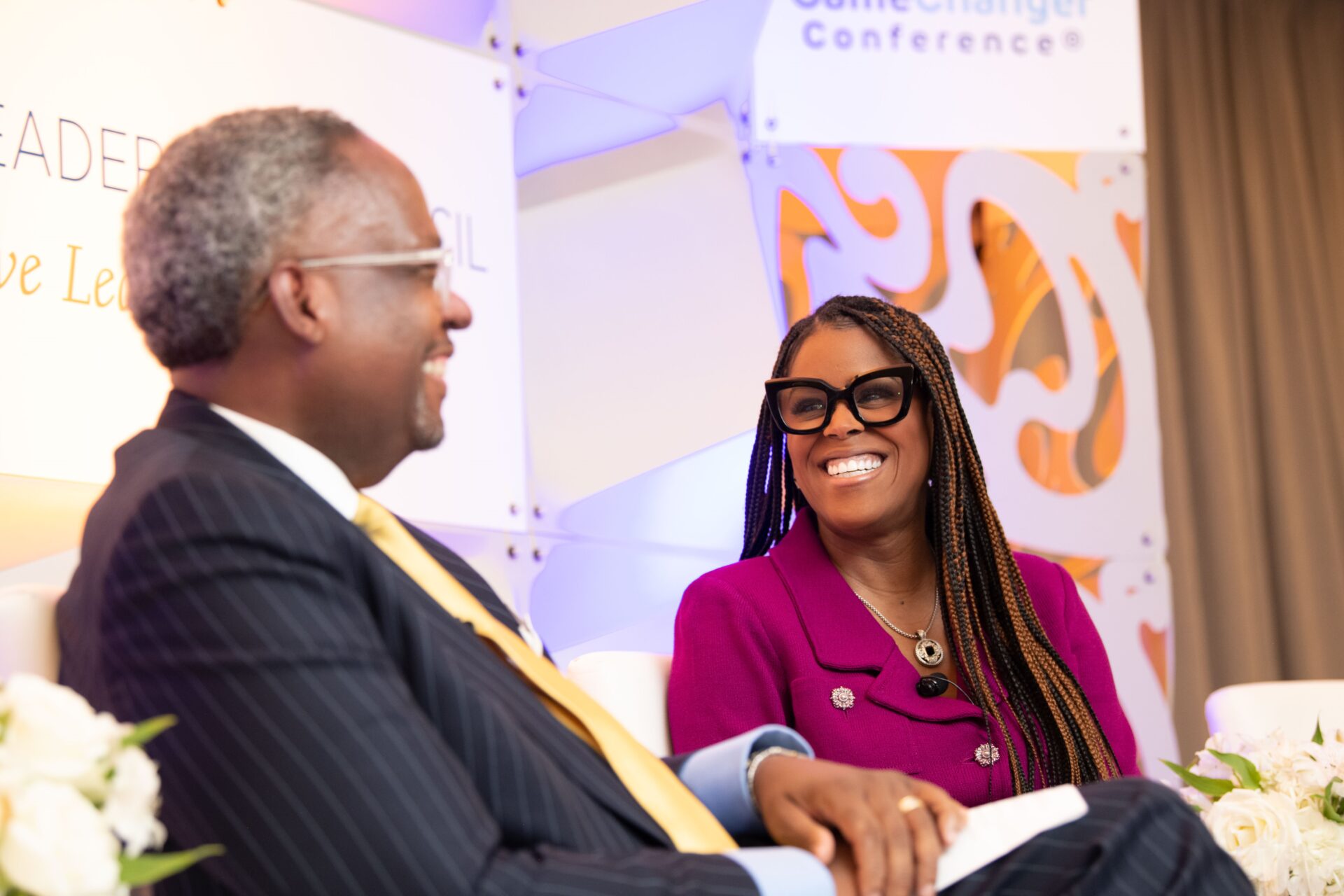
June 6, 2024
Black Corporate Execs Rate DEI Commitment In Executive Leadership Council’s Recent Survey
Nearly 75% Of Black Execs Rate Their Companies' DEI Commitment Strong, Singling Out Areas That Need Improvement
In a groundbreaking survey, almost 75% of top Black executives in corporate America rate their companies’ commitment to diversity, equity, and inclusion (DEI) strong. Simultaneously, they also point to a few areas needing business improvement.
Sixty-four percent of those polled – coming from various sectors and industries – revealed that their respective company is reaffirming or maintaining DEI commitments despite anti-DEI pressure.
The thought-provoking findings stem from a new survey by The Executive Leadership Council (ELC). The council is regarded as the pre-eminent global organization focused on developing Black corporate C-suite and board leaders with more than 800 members.
For the survey, the ELC questioned 180 of its members, including current and former Black CEOs and senior executives at Fortune 1000 and Global 500 companies. They were approached to offer pivotal insights into the priorities and strategies that should guide DEI efforts.
Michael C. Hyter, The ELC president and CEO, touched on several aspects of the survey in an exclusive interview with BLACK ENTERPRISE. Hyter noted it was the first survey of its kind consisting of Black leaders; sixty-seven percent of whom work at companies with over 10,000 employees.
Derailing perceptions DEI means something negative
In general, the DEI fallout has been adverse on many fronts. Large companies have laid off DEI teams or no longer finance programs; lawsuits have been filed against DEI initiatives, colleges are banning DEI programs, and some states are prohibiting affirmative action measures.
The survey comes amid these growing tensions and legal challenges against DEI initiatives. Hyter talked about why it was done:
“Given the heated debate around the topic of DEI, we felt strongly that it would be important to interject a factual conversation from the perspective of the people who live this every day at the executive level in their organizations.”
He added, “The hope and expectation are to clarify the economic value that DEI means and to counter the perception that it means affirmative action or something negative. My hope is that perspective, based on what we’ve learned, allows for the dialogue to be more balanced around how to think constructively about DEI.”
DEI viewed as a business driver a big deal
Released during The ELC’s annual Summer Member Meeting, the survey pinpointed leading ways to improve DEI through U.S. corporations.
“Through our members’ own experiences, we are learning that unequivocally, companies that double down on the most effective and proven DEI programs are creating a workforce that is more engaged and motivated, which naturally leads to enhanced business performance,” Hyter reflected in a statement.
Hyter also shared that 72% of the members who represent corporations they that work for feel that their organizations’ commitment to DEI were strong, and 28% stating it was average or basic.
Hyter says the higher rating reflected members surveyed seeing consistency in several areas. They included DEI being viewed as a business driver issue in their organizations, a CEO commitment in an obvious and consistent way, and a intentional design to increasing the level of engagement and access for opportunities for all people toward leadership roles.
“I want to reinforce with all the noise and stuff that’s going on around us, that there are organizations still doing their work and not running to the hills. Gloom and doom seem to be the way it’s being interpreted in totality absent this survey.”
Areas where DEI business improvement is needed
More work needs to be done to bolster DEI.
Hyter said large companies need to increase the hiring of Black executives in leadership and decision-making roles at the C-Suite and board levels. And along with boosting or maintaining ethnic diversity at all leadership levels, all companies should treat DEI as a business driver. They need to offer fair and equitable opportunities for all, particularly for diverse talent. Finally, respondents advise companies to remain steadfast on their DEI efforts in the current anti-DEI climate.
Among its reports on the topic, The ELC declared companies that “could do a better job of instilling clear measurement mechanisms to determine and reinforce which DEI strategies work best to drive business outcomes.”
Guidance and support from CEOs is essential
Among the key findings was executives who ranked their organizations as strong DEI performers credit their CEOs with driving and supporting DEI strategy tied to business goals and reporting high levels of job satisfaction. In fact, 73% of respondents shared shat sentiment.
“It was crystal clear that the CEO’s involvement, responsibility and leadership in this area made a material difference in the organizations that were defined as doing this well,” Hyter says.
Another top discovery among those citing strong DEI practices noted how it impacted job satisfaction. Clearly defined role responsibilities, alignment to company mission and values, opportunities for growth, and equitable compensation were mentioned in survey responses.
Respondents felt that allowing “superior business performance, providing equivalent access and opportunity for everyone – being mindful of diverse talent, and strengthening corporate culture through an environment that enhances engagement should lead a company’s DEI efforts.”
The ELC Board Chair Gale V. King stated, “We trust that leaders across Corporate America will leverage the insights presented in this report and incorporate them into their decision-making. The ELC stands ready to support companies and CEOs who remain committed to DEI as a strategic business imperative.”
RELATED CONTENT: Corporate Leaders Divided on DEI Commitment Amid Growing Controversy